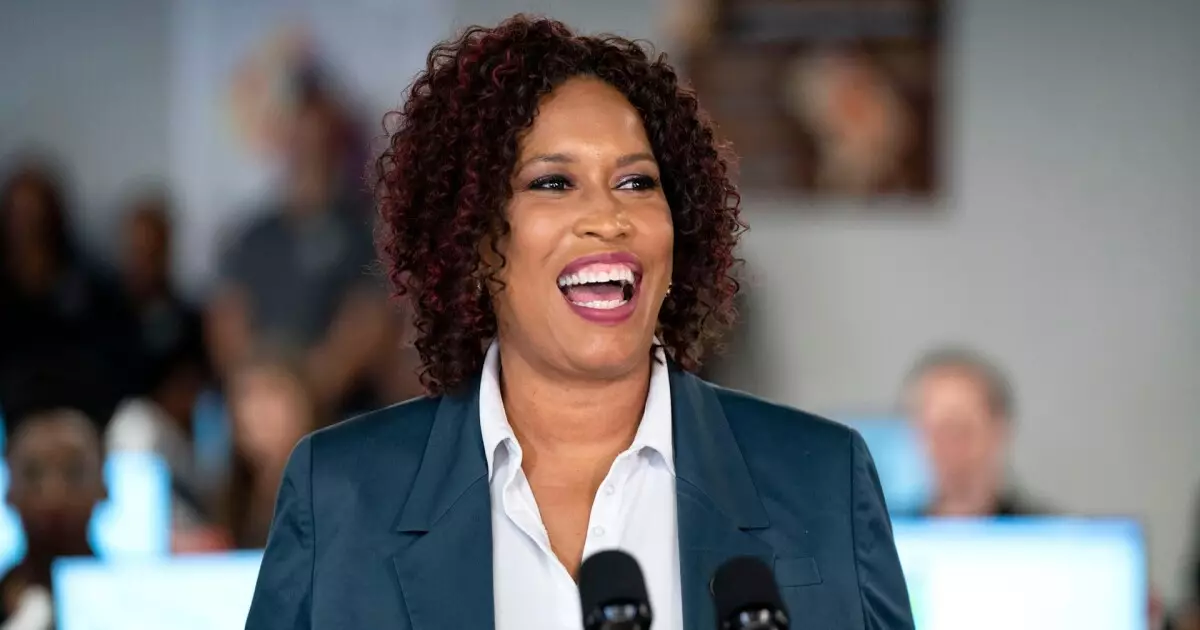The ongoing budgetary turmoil in Washington D.C. is not just a financial matter; it’s a glaring indication of a deeply flawed political system that continues to disregard the needs of one of the nation’s most critical urban centers. Mayor Muriel Bowser’s recent concerns, voiced in a hastily organized press event, represent more than mere anxiety over the city’s finances—they reveal an unsettling truth: D.C. is caught in the crossfire of partisan gridlock. The House’s continuing resolution, which inexplicitly omitted pathways for the city to access its planned budget for 2025, reflects a government that not only fails to deliver services but exacerbates the struggles of its constituents.
As D.C. grapples with a staggering $1.1 billion budget deficit, it becomes painfully clear that our governing bodies are prioritizing political posturing over effective governance. The Mayor’s insistence on urgency, stressing that continued delays may lead to extraordinary measures for budget balancing, highlights an environment wherein essential governance has become riddled with negotiation standoffs and partisan grandstanding.
Impact of Federal Decisions on Local Economics
The relationship between Washington D.C. and the federal government exemplifies how broken our decision-making processes can be. Federal workforce cuts, showcased by the Mayor’s projection of up to 40,000 job losses over four years, inadvertently undermine the economic foundation of the city. Ironically, while the federal government sees fit to discuss economic recovery and worker retention, its actions suggest a disparate reality. The actions of Congress not only affect the budget but have a tangible impact on the livelihood of tens of thousands of D.C. residents.
When local businesses suffer from diminished consumer bases due to job cuts, the city’s prospects narrow significantly. The Mayor’s emphasis on supporting existing businesses and cultivating new ones sounds like sound policy; however, the systemic barriers created by a fractious political climate leave little room for optimism. Amidst the political theater, genuine local concerns are dismissed, throwing D.C. into a precarious economic situation that perpetuates the need for emergency financial measures.
A Fragile Financial Rating Under Siege
The implications of these budgetary dilemmas stretch beyond immediate fiscal concerns. Despite the city being rated at AA+ or above by all major rating agencies, recent moves by Fitch Ratings to impose a negative watch signal a deterioration of confidence amongst investors. This shift could lead to borrowing costs skyrocketing for the city, further complicating its financial landscape and perpetuating a cycle of monetary distress. It serves as a stark reminder that political inaction can have dire consequences on credit ratings, and by extension, the very fabric of local governance.
It is astonishing that Mayor Bowser’s submission of the 2026 budget was delayed, underscoring deep-seated dysfunction in both local and federal levels of governance. Whenever the bureaucratic machinery grinds to a halt, it becomes residents who suffer the repercussions.
Pandering and Political Expediency
President Trump’s attempts to form a task force to address crime and improve the city’s aesthetics seem less about genuine concern and more about political expediency. While the agenda includes legitimate issues like public safety and urban cleanliness, one cannot dismiss the underlying motivations that often play out in such initiatives. Addressing illegal immigration while proposing more police recruits may satisfy certain voter bases, yet it risks oversimplifying complex issues that require thoughtful solutions rather than the simplistically punitive measures often favored in political rhetoric.
Concerns surrounding D.C.’s health and vitality cannot be brushed aside when the city struggles with overflowing trash cans during high-profile events like Cherry Blossom weekend—a reality that should be embarrassing for any local governing body. Yet the ongoing tension with the federal government and the accompanying cuts to services, such as those provided by the National Park Service, only compound the frustrations residents face.
In an age where urban centers are increasingly becoming the lifeblood of the nation’s economy, Washington D.C.’s budgetary crisis shines a spotlight on the failings of a disjointed political system engaged in a high-stakes game that places the fortunes of its constituents on the back burner. As policymakers continue to squabble over resolutions, the need for a serious, representative dialogue becomes ever more urgent. It’s time for our leadership to recognize their responsibility towards ensuring that cities like D.C. are not just surviving but thriving in an evolving economic landscape.

